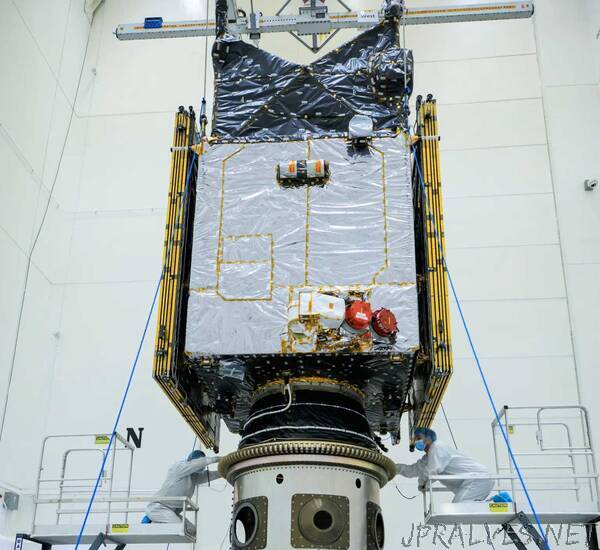
“The spacecraft will explore a metal-rich asteroid, also named Psyche, to learn how Earth and other rocky planets formed.
NASA will provide coverage of the upcoming prelaunch and launch activities for its Psyche mission to a metal-rich asteroid. Launch is targeted for 10:16 a.m. EDT Thursday, Oct. 12, on a SpaceX Falcon Heavy rocket from Launch Complex 39A at NASA’s Kennedy Space Center in Florida.
Live launch coverage without commentary will begin at 9:15 a.m. EDT on the NASA Television media channel. The live launch broadcast with commentary will begin at 9:30 a.m., and will air on YouTube, X, Facebook, Twitch, Daily Motion, the NASA app, and the agency’s website. NASA TV’s public channel will be airing coverage of a spacewalk outside the International Space Station.
Prior to launch, NASA will hold a mission and science briefing at 12 p.m. on Tuesday, Oct. 10, and a prelaunch news conference at 1 p.m. on Wednesday, Oct. 11. Watch coverage on NASA TV, the NASA app, and the agency’s website at:
https://www.nasa.gov/nasatv
NASA is sending the spacecraft to an asteroid named Psyche, which orbits the Sun between Mars and Jupiter, to learn how Earth and other rocky planets formed. This will be the first mission to an asteroid with substantial amounts of metal, as previous missions have explored asteroids made mostly of rock or ice. The asteroid Psyche may be part of the interior of a planetesimal, a building block of a rocky planet. By studying it, scientists seek to determine whether the asteroid was a planetary core.
Attached to the Psyche spacecraft is a technology demonstration, NASA’s Deep Space Optical Communications. This experiment will test the ability of lasers to transmit data at increased rates beyond the Moon. High-bandwidth optical communications to Earth will be tested during the first two years of the spacecraft’s journey to Psyche. While the optical communications demonstration is hosted by Psyche, its transceiver will not relay Psyche mission data.”
